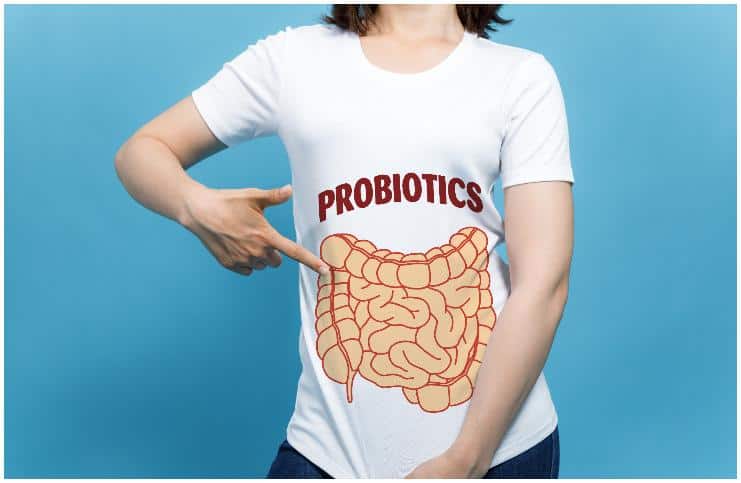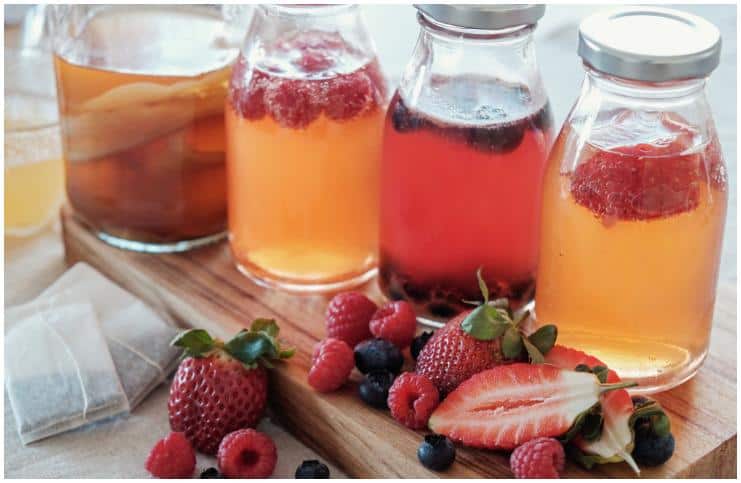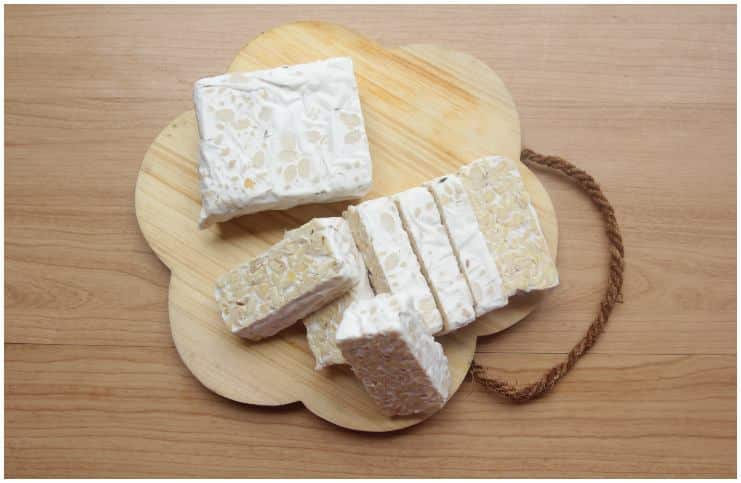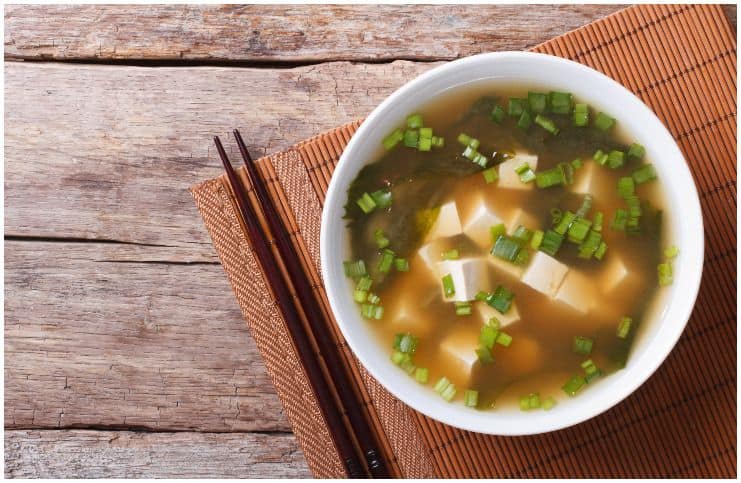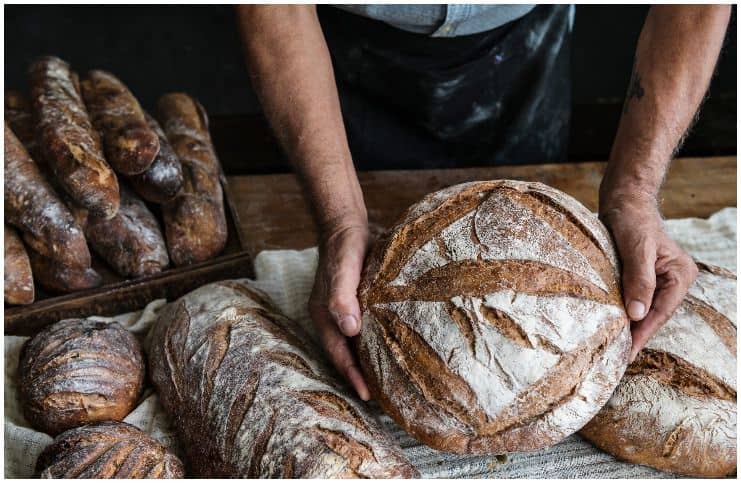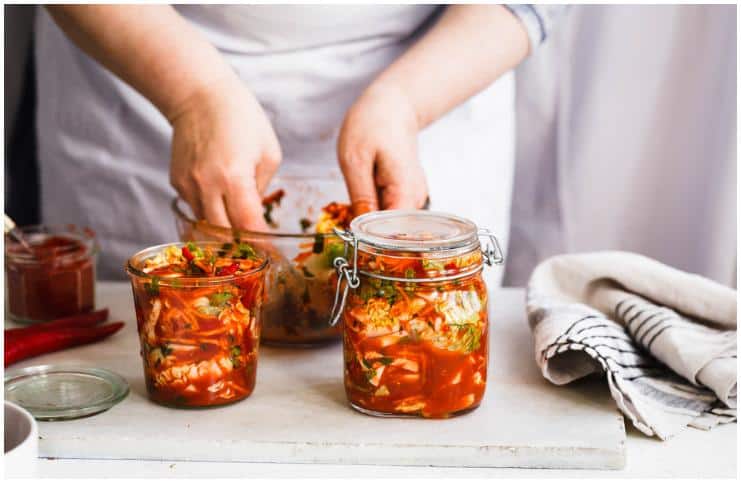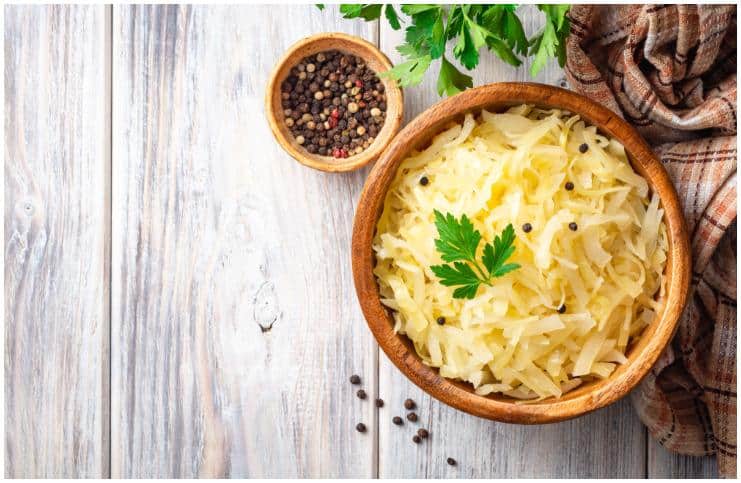The term probiotic (meaning “promoting life” or “for life”) refers to foods and dietary supplements which contain “friendly” or “beneficial” bacteria. There are many types of bacteria used as probiotics and many different species.
There are actually 10 times more friendly bacteria in your gut than cells in your body!
Health Benefits
- they are used in maintaining urogenital health. Similar to the intestinal tract, the vagina is a finely balanced ecosystem and needs these good bacteria.
- according to a 2012 study, babies who are at risk for developing eczema may benefit from their mothers’ consumption of this type of food.
- they help in irritable bowel syndrome and Crohn’s disease.
- some are also effective in ulcerative colitis and childhood diarrhea.
- they increase the energy production of the vitamin B12.
- they alleviate the adverse effects of taking many antibiotics.
- they help your endocrine (hormonal) system.
- they handle stress through the “gut-brain” connection.
- they reduce or prevent the severity of flu and colds.
- they can lower total and LDL (bad) cholesterol levels.
- according to a study done by Harvard Medical School in 2015, they can help reduce diarrhea episodes.
- according to a 2011 study, they can reduce anxiety and depression-related disorders.
However, factors like stress, diet, illness and prescriptions drugs can skew the ratio of bad and good gut bacteria which ultimately may lead to conditions like – inflammation, gastrointestinal distress, a weakened immune system, eczema, constipation or severe diarrhea.
Below is a list of 11 vegan probiotics for men and women:
#1 Kombucha Tea
Kombucha is made by adding yeast, specific strains of bacteria, and sugar to green or black tea, and then allowing it to ferment for at least a week.
This drink has numerous health benefits such as – fighting candida overgrowth, improved digestion, mood stability, and mental clarity. Furthermore, kombucha tea contains glucosamines, a potent treatment of all types of arthritis.
#2 Pickles
Pickling is a type of fermentation. Naturally, fermented salt pickles encourage the growth of beneficial bacteria, that will replenish the numbers in our gut and restore our physical and mental health.
#3 Olives
Olives are an important component of the traditional Mediterranean diet. Moreover, table olives are fermented food that provides bacteria such as lactobacilli which have probiotic effects. You can snack on your favorite type of olives or add to a pizza or salad.
#4 Tempeh
Tempeh is a fermented soy product of Indonesian origin. 100 grams of tempeh provides 37 percent of an adult’s recommended daily intake of protein. In addition, it is a smart addition to your diet because of its niacin and riboflavin content.
#5 Miso Soup
Miso soup is a vegetable broth soup and tofu which is high in protein and probiotics and low in calories.
In addition, miso soup contains over 150 types of bacteria and is a good source of vitamins E, K, and various B vitamins. Miso soup also tends to be low in calories.
When purchasing this food, spend your money on the live enzyme-rich product and avoid the pasteurized version.
#6 Sourdough Bread
During the California Gold Rush, sourdough was the main bread made in Northern California. It is a type of bread made from the naturally occurring yeast and bacteria in flour. This bread contains lactobacillus, one of the main bacteria found in yogurt. Furthermore, the yeast and bacteria in this bread work to predigest the starches, therefore making it more easily digestible.
#7 Kimchi
Kimchi is eaten by Koreans so much that this food is usually seen in Korean television shows and movies alike.
Kimchi is created by combining the main ingredient (depending on the main vegetable ingredient used, there are more than 300 different varieties of kimchi), such as Chinese cabbage, with other spices and foods, such as radishes, red pepper flakes, garlic, carrots, onion, ginger, and sea salt. Like most Asian dishes, kimchi is extremely sour and spicy in taste.
#8 Microalgae
Microalgae is a food that is created from ocean plants, like – spirulina, blue-green algae, and chlorella. In some studies, these foods have been shown to improve gastrointestinal health and increase good bacteria.
#9 Water Kefir
Water kefir (means “feel good” in Turkish) utilizes a beneficial culture of microbes that consume the simple sugars in the juice, sugar water or coconut water base to create a plethora of probiotics. Note – if you don’t want to intake dairy products, then water kefir is a remarkable non-dairy probiotic source.
#10 Supplements
In the U.S., they are sold as dietary supplements, that do not undergo the testing and approval process that prescription medications do. Moreover, it’s important to remember that these good bacteria are live organisms and won’t do you any good if they are dead. Therefore, when buying a supplement you should check the expiration date.
#11 Sauerkraut
Made from fermented vegetables, sauerkraut (presently it is extremely popular in Germany) is a storehouse of beneficial live cultures which helps reduce allergy symptoms. More importantly, it is rich in vitamins A, B, C, and K and low in calories.
References http://www.jacionline.org/article/S0091-6749%2812%2901464-9/abstract http://www.health.harvard.edu/vitamins-and-supplements/ http://www.pnas.org/content/108/38/16050
